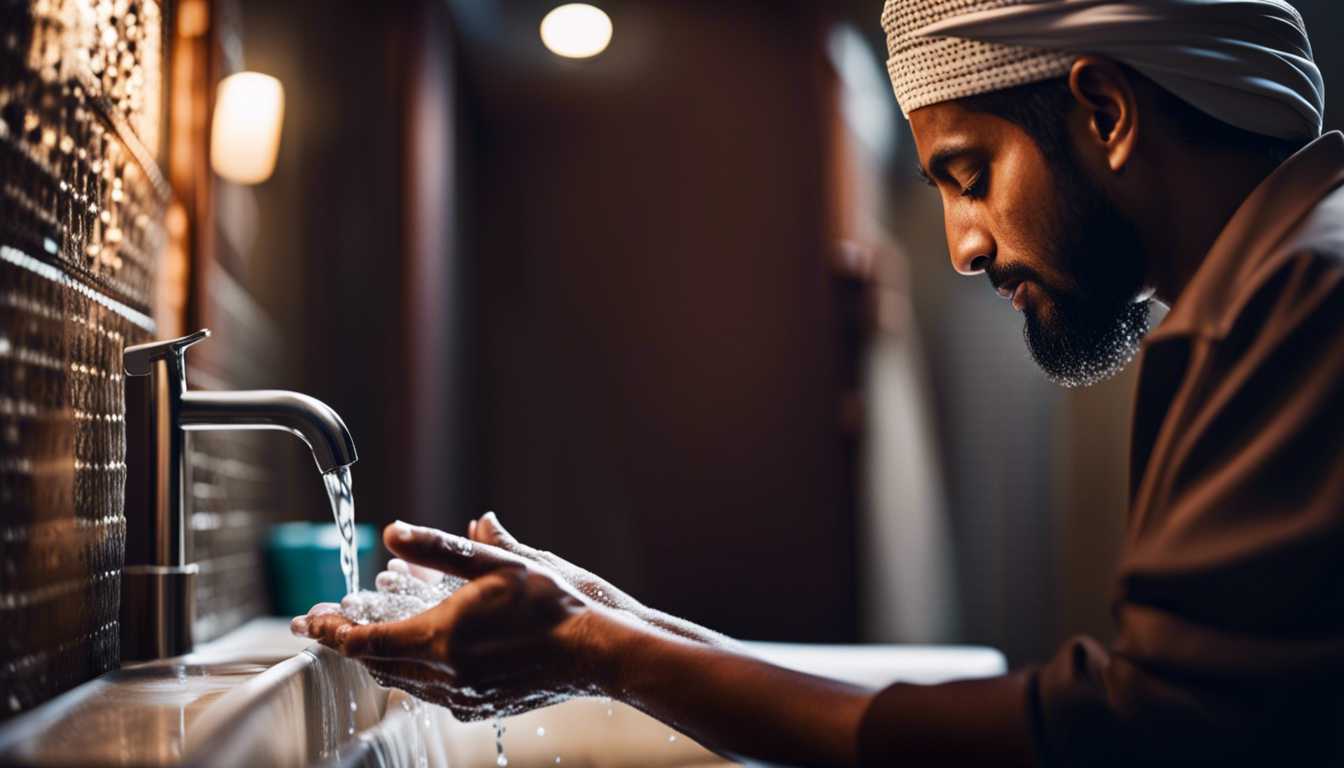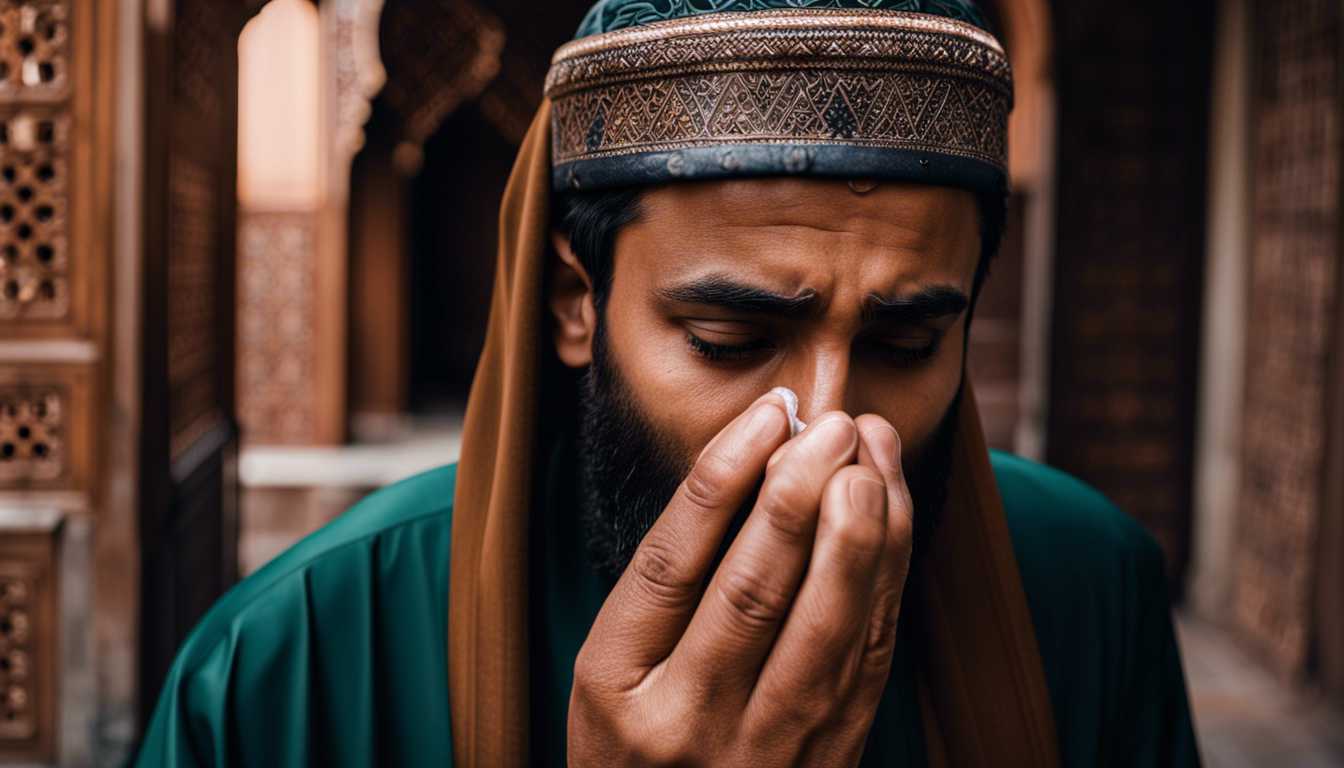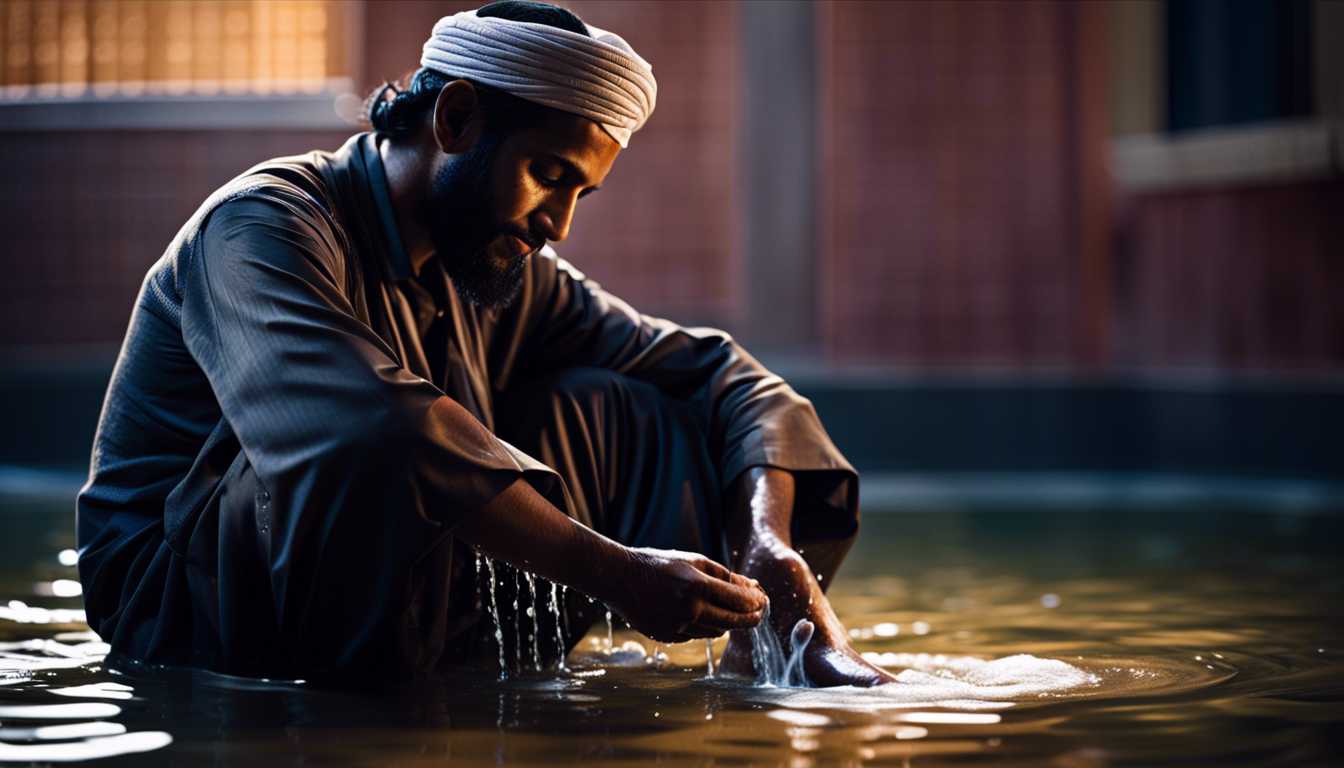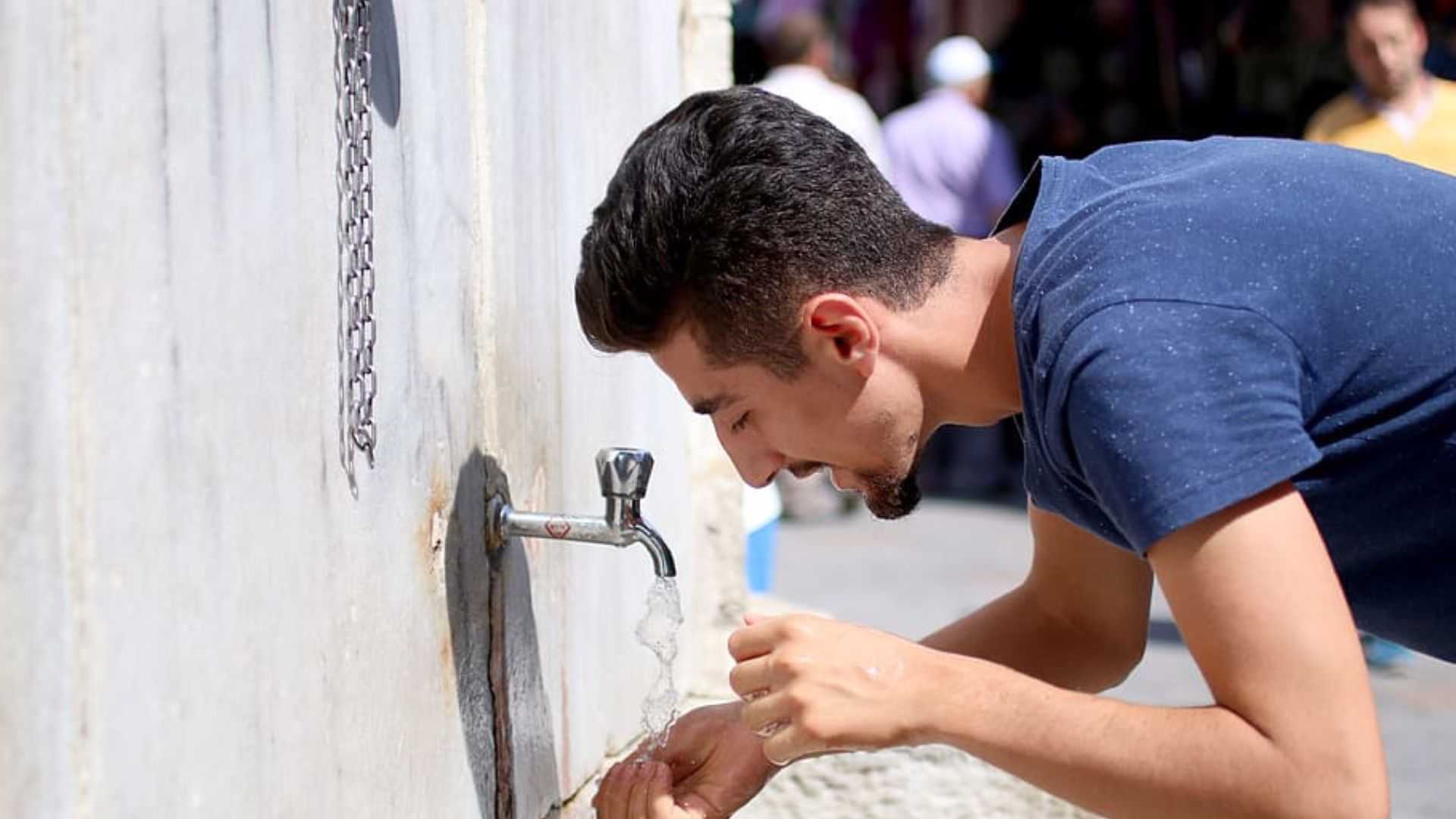How to do Wudu: A prayer is a link between Allah almighty and his slave, or the people. A person should link himself always to Allah almighty. For this link, a person should offer Wudu or ablution. This ablution is very important or one of the most important things before going for a prayer. but before starting the wudu a person should also look into himself, his body, and his clothes. That it should not contain any filth. so a person should clean himself with water, or his body or his clothes. and after that, a person should perform the ablution. whenever a person urinates or defecated, he or she should wash their private parts. After washing the private parts, they should take a step and go to do the ablution. Let’s learn How to do Wudu step by step in this article.
What is Wudu?
Before beginning a prayer, one should purify themselves through the performing of wudu. It is a must to wash your hands, mouth, nose, face, arms, head, and feet as part of this purifying rite.
The steps must be carried out in the prescribed order with no significant breaks in between. According to the Sahih hadith of Sunan Abu Dawud, the Prophet of Allah (pbuh) said:
“The prayer of a person who does not perform ablution is not valid” thus making it a necessary act before you begin your prayer.
Now lets take a look How to do Wudu step by step:-
How to do Wudu?
As our Prophet Muhammad (peace be upon him) used to perform Wudu, now we will exactly demonstrate the Prophet sallallahu alaihi wasallam’s ablution, the way he performed. Steps of How to do Wudu are:-
Step 1: Declaring Your Intentions (Niyyah)
Wudu begins with a sincere intention to purify oneself. This internal commitment sets the tone for the entire process, aligning one’s actions with the purpose of attaining purity. The intention should be in the heart.
Step 2: Saying Bismillah
Say, Bismillah, in the name of Allah. after that, we will start. Before beginning any work, we say Bismillah to seek Allah’s mercy in it.
Step 3: Wash Hands Three Times

We should open the water slowly and then three times washing the hands until the wrist. and also between the fingers. Begin with washing with the Right hand first. Then wash the left hands, as it is Prophet Muhammad (pbuh)’s sunnah. make sure to clean every part of the skin so no dirt remains.
Step 4: Rinse Mouth Three Times

Rinse your mouth three times, taking water in the right hand. If you have Miswak, you can clean your teeth with that thoroughly, or use your right finger to clean your teeth instead. Gargle your mouth til throat so no food particles or mucus remains.
Step 5: Sniff Water Into Nostrils Three Times

Then we should wash the nose three times, taking the water in from one hand and taking the water out from the second hand. You can use your pinky finger to clean the nostrils.
Step 6: Wash Face Three Times

After that, we should wash the face starting from the forehead until the chin, and from one ear to another one. Men need to pass the wet fingers of their hand in the beard if they have one.
Step 7: Wash Arms Three Times

Then a person should wash his arms starting from the beginning of the fingers until the elbow, first the right hand, then the left hand. Make sure no part of the arms remains dry. Roll up your sleeves appropriately so that water may reach the elbows properly.
Step 8: Wipe Head Once
After that take your wet hands and wipe your head only once starting from your forehead until back and then coming from the back to front. this is only once.
Step 9: Clean Your Ears Once

And then only once clean your ear, taking your wet finger, your index finger should wipe it and put it inside. and with your thumb, you should clean or wipe the outside.
Step 10: Wash Your Feet Three Times

Then you should wash your feet, the right side first three times starting from your toe all the way to your ankle three times. and be sure that your water should go between your fingers. then your left foot, again starting from your toe
and fingers and all the way to your ankle.
Step 11: Recite the Shahada and the Dua
The Prophet (peace be upon him) would say the shahada after completing his wudu:
“Ash-hadu a la ilaha illal lahu wa ash-hadu anna Muhammadan ‘abduhu wa rasuluh.”
In other words, “I testify that there is no god but Allah, and I also testify that Muhammad is His servant and messenger.”
He would then say the dua
“Allahuma j’alnee mina tawabeen waj-‘alnee minal mutatahireen” after making this declaration.
Meaning, “O Allah, make me among those who seek repentance and make me among those who purify themselves.”
Your wudu is finished at this point, so you can start praying.
You can also watch a video tutorial on How to do Wudu:
Difference between Wudu and Ghusl
Both wudu and ghusl are purifying rituals, however, they vary in their reason and requirement. Wudu should be performed for mild impurities, before beginning to pray, read Quran, etc. while Ghusl should be performed for full-body purification needed after major impurities.
Also Read: How to do Ghusl
Wudu’s Invalidators: When to Renew
After knowing how to perform wudu, it is important to learn how not to break the wudu. Wudu is rendered invalid by certain behaviors, such as using the restroom, breaking the wind, or losing consciousness. To keep your purity, you must be aware of these behaviors. because without wudu, you can’t perform Salah, neither read the Quran etc.
Hadiths on Wudu:
1) It was narrated that Umm Salamah said: “I said, O Messenger of Allah! I am a woman with tight braids. Should I undo them when I take a bath to cleanse myself from the state of sexual impurity?” He said: “Rather it is sufficient for you to pour three handfuls of water over yourself, and you will be purified,” or he said: “In that case you would have become purified.” Grade: Sahih (Darussalam)
2) Abu Dharr said: […] Clean earth is a means for ablution for a Muslim, even for ten years (he does not find water); but when you find water, you should make it touch your skin, for that is better.
3) I said: Messenger of Allah, tell me about ablution. He said: Perform ablution in full and make the fingers go through the beard and snuff with water well except when you are fasting.
4) Humran b. Abban, the freed slave of ‘Uthman, said: I saw ‘ Uthman’ b. ‘Affan while he performed ablution. He poured water over his hands three times and then washed them. He then rinsed his mouth and then cleansed his nose with water (three times). He then washed his right arm up to the elbow three times, then washed his left arm in a similar manner; then wiped his head; then washed his right foot three times, then washed his left foot in a similar manner, and then said: I saw the Messenger of Allah (ﷺ) performing ablution like this ablution of mine. Then he (the Prophet) said: He who performs ablution like this ablution of mine and then offered two rakhahs of prayer without allowing his thoughts to be distracted, Allah will pardon all his past sins. Grade: Sahih (Al-Albani).
5) Abu Hurairah narrated that : Allah’s Messenger said: “When a Muslim, or believer, performs Wudu’, washing his face, every evil that he looked at with his eyes leaves with the water – or with the last drop of water, or an expression similar to that – and when he washes his hands, every evil he did with his hands leaves with the water – or with the last drop of water – until he becomes free of sin.” Grade: Sahih (Darussalam).
6) It was narrated from Abu Sa’eed that: The Messenger of Allah said: “There is no ablution for one who does not mention the Name of Allah (before doing it).”
7) Narrated Abu Hurayrah: The Messenger of Allah (ﷺ) said: The prayer of a person who does not perform ablution is not valid, and the ablution of a person who does not mention the name of Allah (in the beginning) is not valid. Grade: Sahih (Al-Albani)
Quranic Verses on Wudu:
1) O you who have believed, do not approach prayer while you are intoxicated until you know what you are saying or in a state of janabah, except those passing through [a place of prayer], until you have washed [your whole body]. And if you are ill or on a journey or one of you comes from the place of relieving himself or you have contacted women and find no water, then seek clean earth and wipe over your faces and your hands [with it]. Indeed, Allah is ever Pardoning and Forgiving. (Surah An-Nisa, Verese 43)
2) O you who have believed, when you rise to [perform] prayer, wash your faces and your forearms to the elbows and wipe over your heads and wash your feet to the ankles. And if you are in a state of janabah, then purify yourselves. But if you are ill or on a journey or one of you comes from the place of relieving himself or you have contacted women and do not find water, then seek clean earth and wipe over your faces and hands with it. Allah does not intend to make difficulty for you, but He intends to purify you and complete His favor upon you that you may be grateful. (Surah Maidah, Verse 6)
Conclusion
In the hustle and bustle of daily life, Wudu provides a moment of pause, reflection, and connection with the divine. and learning how to perform wudu correctly very essential. It’s not just a physical routine but a spiritual journey towards purity and devotion. By performing Wudu with sincerity and mindfulness, you pave the way for a deeper and more meaningful connection with Allah.
This was all about How to do Wudu. We hope you learned everything about How to perform Wudu in Islam. Read more Islamic Blogs or follow us on social media for Islamic reminders.
FAQs on How to do Wudu
Can I perform Wudu without water?
Water is an essential element of Wudu. If water is unavailable, you can perform Tayammum, a dry ritual purification using clean earth.
Can I do Wudu while I'm menstruating?
No, menstruating women do not perform Wudu during their menstrual cycle. They can resume after their cycle is complete.
What if I forget to make the intention (Niyyah) before Wudu?
Intention is a mental act. If you remember during the process, you can make the intention then.
How long does the state of Wudu last?
Wudu remains valid until something that invalidates it occurs, such as using the restroom or breaking wind.
Can I renew Wudu before each prayer even if it's not invalidated?
Yes, renewing Wudu before each prayer is recommended, as it enhances your state of purity and connection with Allah.
How do you do wudu step by step?
By following the above steps, you can easily do Wudu step by step.
How to do Wudu as a Woman?
Wudu steps are same for both Men and Women. so women can do Wudu the same way as men do.
Can you do Wudu at Home?
Yes, you can do Wudu at Home. In fact, you can do wudu anywhere that is clean.
What is Wudu in Islam?
Wudu, also known as ablution, is a ritual cleansing process in Islam. It entails a set of actions, including washing your hands, mouth, nose, face, arms, head, ears, and feet with the goal of purifying your body. Muslims perform Wudu to achieve a condition of ceremonial purity prior to prayer or handling the Quran. This action emphasizes sincerity and humility while symbolizing physical and spiritual cleanliness.






